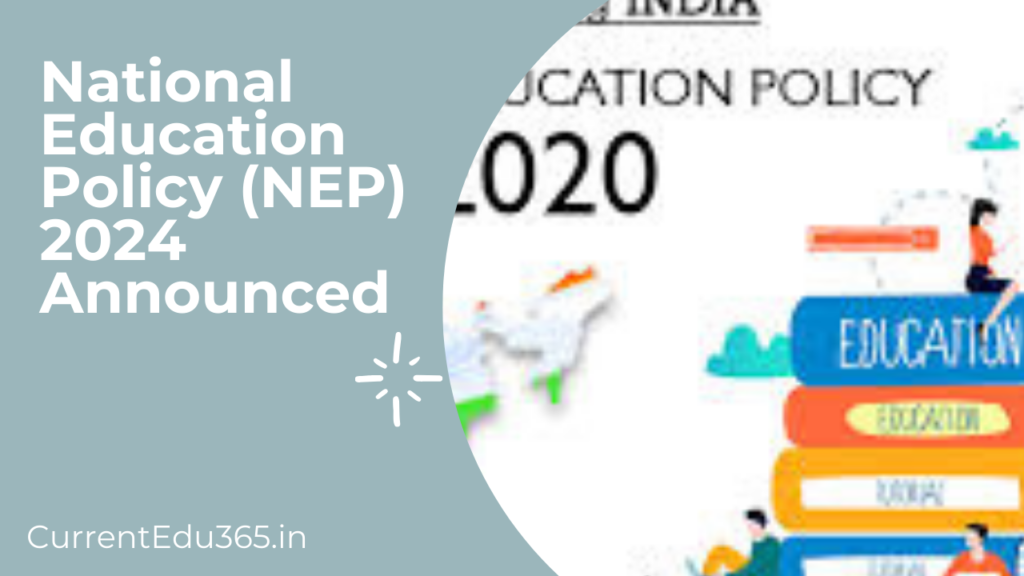The Indian government has recently announced the National Education Policy, NEP 2024. This is a whole new turn in the circle of Indian education. The whole new policy has emphasized the integration of technology into the curriculum and the development of vocational training within school for the betterment of the future readiness of the students. In this article, we will discuss the integral components of NEP 2024, its objectives, and the potential implications thereafter.
Introduction to NEP 2024
NEP 2024 is an integrated scheme put before the Indian government for radical changes in the existing education system. In comparison to NEP 2020, this revised version lays more emphasis on modernization of education by including advanced technology and vocational training. This scheme works on modernizing the Indian education system and helps students in getting better job opportunities.
Salient Features of NEP 2024
- Integration of Technology: One of the major features of NEP 2024 shall be the inclusion of technology in the curriculum. The government has decided to include modern technologies like digital teaching tools and online resources as part of the curriculum in schools. This shall help the students gain in digital skills and make them technologically adept.
- Vocational Training: The policy encourages vocational training in schools. Along with vocational and technical education, students would have an overview of different industries and professions. This will certainly facilitate them to make the right decisions about their careers and job placements.
- New Teaching Methods: NEP 2024 introduces new teaching methods besides conventional ones. For example, project-based learning, problem-solving studies are other new teaching methods that have been introduced with the motive of enhancing problem-solving skills in students.
- Teacher Training and Development: The new policy focuses on the training and development of teachers. Teachers will regularly be trained in the usage of new technologies and teaching methodologies to uplift the quality of teaching.
- Inclusive Education: NEP 2024 speaks about inclusive education, making sure that quality education reaches all people irrespective of their socio-economic background. Special programs will be implemented aimed at bringing students from less fortunate circles of society forward.

Objectives and Benefits of NEP 2024
- Digital Literacy: NEP 2024 aims at increasing digital literacy among students by integrating technology in order to keep them prepared for newer technologies and job prospects in the future.
- Industry-Based Education: Vocational training among students will help them get to know more about industries and professions that will make them job market-ready.
- Improvement in the Quality of Education: New pedagogies along with teacher training are likely to improve the quality of education as a whole, thereby delivering more efficient learning for the students.
- Inclusion and Equality of Opportunity: The policy aims to ensure equal opportunity for all students to have quality education, hence making the system more inclusive, reducing educational inequity.
Implementation of NEP 2024
The following actions will be taken for the successful implementation of NEP 2024:
- Planning and Policy Formulation: Plans shall be drawn by the Centre and the states, which shall determine the resource allocation required for the implementation of the policy.
- Schools Training: Schools shall be trained in the usage of newer technologies and teaching methodologies to fulfill the requirements of the policy.
- Monitoring and Regular Evaluation: The policy shall be regularly monitored and evaluated for achieving its objectives.
- Public Participation: The public will be involved in contributing to the better working of the policy and also to take suggestions from different stakeholders involved.
Possible Issues
- Resource Constraints: Resource constraints are at variance with less-endowed areas, which may pose a challenge in some aspects of this policy.
- Teacher Training: Training teachers in new technologies and practices will be difficult in rural and inaccessible areas.
- Inclusion Equity: How to make certain that inclusive education serves the most disadvantaged students.
Conclusion
NEP-2024 has been a giant leap forward in modernizing India’s education system, with keen attention to integrating technology and vocational training. This policy will make education more relevant and efficient and thus prepare students for challenges in the future. Though there might be practical difficulties in implementing the policy, the potential benefits are satisfactory, and improvement in the education system as a whole is promising.
More information and updates available at http://currentedu365.in.




